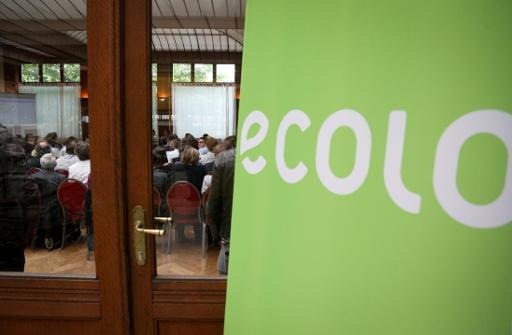Ecolo has become the leading party in Brussels, according to a political barometer jointly produced by La Libre, De Standaard, the RTBF and the VRT published on Tuesday. In Wallonia, the current Francophone Liberal/Conservative Liberal Reformist Movement-Francophone Christian Democrats coalition is no longer sustainable at present. The New Flemish Alliance, remains key in the Flanders region.
In Wallonia, the current so-called orange-blue coalition (Reformist Movement-Christian Democrats) is losing support, and is barely reaching the 30% bar.
For their part, the Socialists remain the main political grouping in the south of the country, with 25.4% of the voting intentions. The Socialists are still below their comfortable electoral performance (more than 30%) recorded in May 2014, but they have made progress as reported in the two most recent barometer reports issued.
The Reformist Movement (at 19.9%) is the second party in Wallonia but with a decline of 5.9 percentage points compared to 2014, is now hotly pursued by the ecologists (Ecolo) who are in good shape (with 19.7% of the vote, an increase of 11.5 percentage points).
Following the Belgian Workers’ Party, which is gaining ground with 14% (up by 8.5 percentage points) are the Francophone Christian Democrats with 10.4% (down by 3.6 percentage points). The People’s Party has 5.1%, with the Liberal/Socialist Liberals at 3.3% not making a name for themselves in the Walloon region.
According to the survey, in Brussels, Ecolo confirms its excellent ballot result in October getting 19.1%, an increase of 8.6 percentage points. The party is ahead of the Reformist Movement (17.4% - down 5.7 percentage points) and the Socialists (15.8% - down 9.1 percentage points). They are followed by the Belgian Workers’ Party, with a net growth of 11.5% (up 7.7 percentage points and the Liberal/Socialist Liberals with 10.3% (down 0.8 percentage points). With only 5.6% (down 3.7 percentage points), the Francophone Christian Democrats is within a hair’s breadth of the eligibility threshold.
In Flanders, the New Flemish Alliance is the inescapable leader in the survey at 28.3%. Ten percentage points separate the nationalists from the Flemish Christian Democrats (18.7%) and the Conservative Liberals (Open VLD - 17.5%). Nevertheless, the New Flemish Alliance is slightly reduced in voting numbers compared to the 2014 elections (down by 4.1 percentage points), whilst the Christian Democrats and the Liberals have defended their position.
Groen is showing significant growth (16% - up 7.4 percentage points), whilst the Alternative Socialist Party is lower (9.2% - down 4.8 percentge points). Vlaams Belang is not, in all likelihood, taking advantage of the New Flemish Alliance’s decrease, only recording a slight increase at 7.6%. The Flanders Belgian Workers’ Party are not even within a hair’s breadth of the above threshold at 2.5%.
The survey was carried out by telephone on Monday 19 November through to Saturday 8 December amongst 2,797 people (with a margin of error of 3.1% in Wallonia and in Flanders and 3.6% in Brussels).
The Brussels Times

